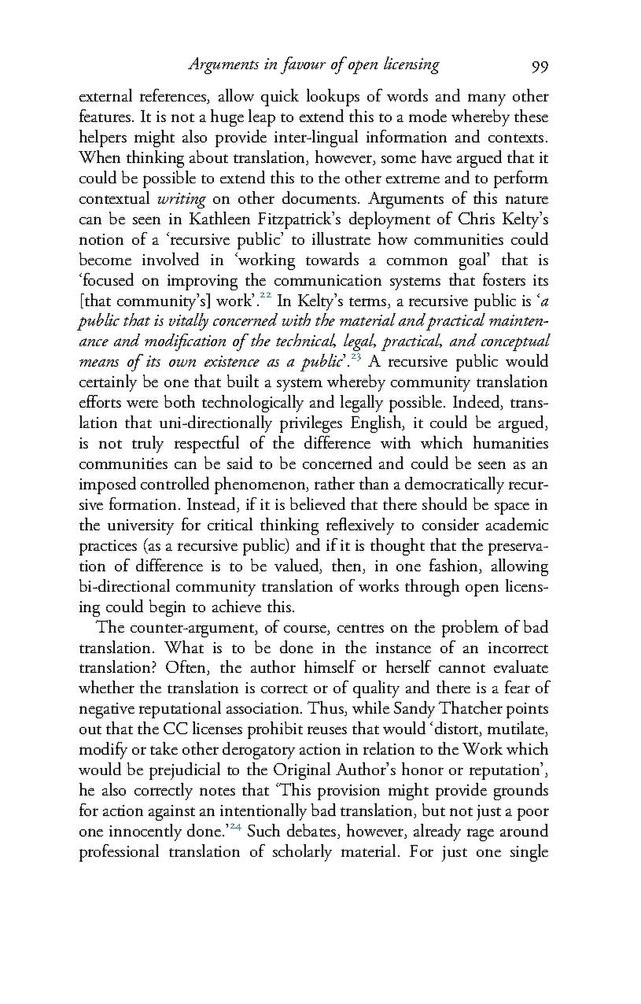external references, allow quick lookups of words and many other features. It is not a huge leap to extend this to a mode whereby these helpers might also provide inter-lingual information and contexts. When thinking about translation, however, some have argued that it could be possible to extend this to the other extreme and to perform contextual writing on other documents. Arguments of this nature can be seen in Kathleen Fitzpatrick’s deployment of Chris Kelty’s notion of a ‘recursive public’ to illustrate how communities could become involved in ‘working towards a common goal’ that is ‘focused on improving the communication systems that fosters its [that community’s] work’.22 In Kelty’s terms, a recursive public is ‘a public that is vitally concerned with the material and practical maintenance and modification of the technical, legal, practical, and conceptual means of its own existence as a public’.23 A recursive public would certainly be one that built a system whereby community translation efforts were both technologically and legally possible. Indeed, translation that uni-directionally privileges English, it could be argued, is not truly respectful of the difference with which humanities communities can be said to be concerned and could be seen as an imposed controlled phenomenon, rather than a democratically recursive formation. Instead, if it is believed that there should be space in the university for critical thinking reflexively to consider academic practices (as a recursive public) and if it is thought that the preservation of difference is to be valued, then, in one fashion, allowing bi-directional community translation of works through open licensing could begin to achieve this.
The counter-argument, of course, centres on the problem of bad translation. What is to be done in the instance of an incorrect translation? Often, the author himself or herself cannot evaluate whether the translation is correct or of quality and there is a fear of negative reputational association. Thus, while Sandy Thatcher points out that the CC licenses prohibit reuses that would ‘distort, mutilate, modify or take other derogatory action in relation to the Work which would be prejudicial to the Original Author’s honor or reputation’, he also correctly notes that ‘This provision might provide grounds for action against an intentionally bad translation, but not just a poor one innocently done.’24 Such debates, however, already rage around professional translation of scholarly material. For just one single
